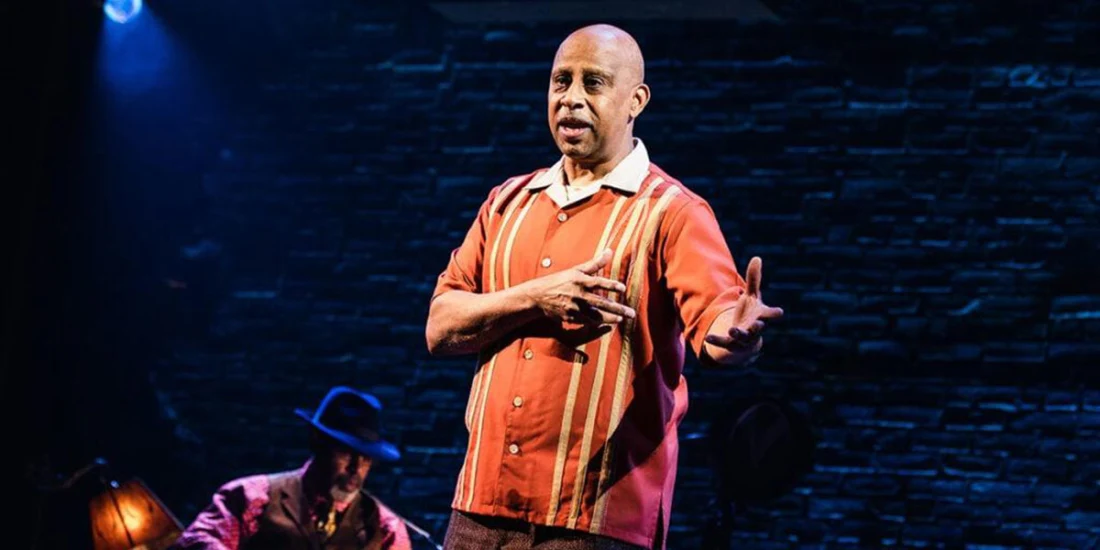‘Lackawanna Blues’ review – Ruben Santiago-Hudson delivers an explosive, unmissable performance
Setting off fireworks may be illegal in Broadway theatres, but Ruben Santiago-Hudson unleashes them continually in the Manhattan Theatre Club production at the Samuel J. Friedman Theatre, as he seamlessly transforms into 24 individuals from his childhood as a ward in a rooming house in Lackawanna, New York ― all this while meticulously embodying their every hope and disaster.
Each character in the play is sensational and original, but the show's heartbeat resides in the pillar of the community: Ms. Rachel Crosby, AKA Nanny, a matronly Black woman from the South who knows how to throw down more ferociously than any battle-hardened boxer or grifter. But Nanny chooses to devote her strengths to lifting up her beautiful Black people at a time when the world insisted that they belonged in the gutter.
In Lackawanna Blues, Santiago-Hudson tells her story as the de facto mother of a crew of wily characters from all over the United States, whom she keeps together whenever they get underfoot. Some came to her boarding house after fleeing tragedy or the law; others, such as Young Ruben, AKA Junior, were recruited after Nanny saw that they were in need. All blossom under her nurturing gaze, even if that means coaxing them to drop their fisticuffs with a freshly cooked meal or threatening them into behaving properly with a chilling smile that brooks no dissension.
Hudson-Santiago penned and performed the play 20 years ago at The Public Theatre, and for the Broadway debut, he has taken over directing duties as well. The near autobiographical piece is well-crafted, but like many one-person performances, its constant focus on the past threatens to descend into maudlin reveries at times. What keeps the story fresh is not only the authenticity that Ruben-Santiago has invested into each characterization ― from their bodily tics to their ultra-specific regional accents ― but also the incisive attack that he takes in pushing the action forward.
Rather than mock the people from his past, Hudson-Santiago takes their flaws seriously and treats them like the main characters of the overall drama. Whether they be an autistic man menacingly searching for his jingly keys or a man whose tongue darts like a serpent's between each word he takes or an eager party girl using her gyrating rump to lure in a mate, the play and actor revel in their humanity while avoiding caricature for the sake of cheap laughs. Their opportunities may have been scarce, but regardless of their circumstances, Lackawanna Blues refuses to treat its characters like props; rather the play honors them for no other reason than they are alive.
Given the wealth of details that Hudson-Santiago unfurls, the overall experience could be exhausting. What prevents the audience from drowning is the conversational tone that he takes while inviting us into his world; the camaraderie that he establishes with his onstage companion and backing guitarist ― a fabulous Junior Mack ― and the constant return to Nanny. Whenever Ruben-Santiago brings his hands together and calmly transforms into her, she becomes our northern star. That action is an essential reminder that the Black women have always been the source of survival for the Black community within the United States. How wonderful that they are finally receiving their flowers on Broadway.
Originally published on
